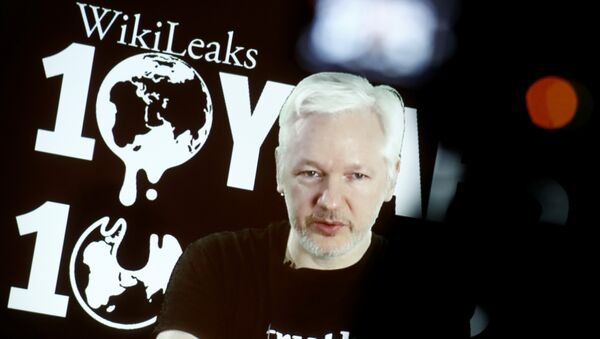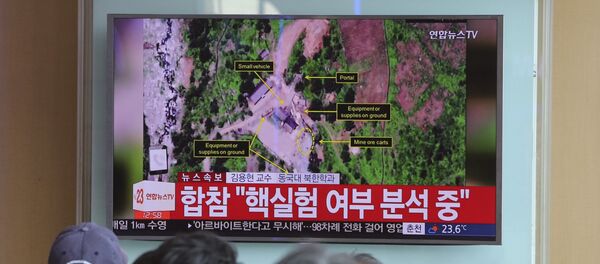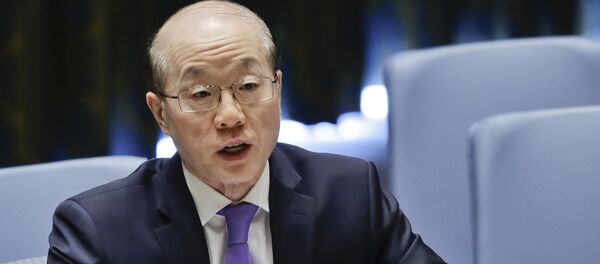MOSCOW (Sputnik) — WikiLeaks founder Julian Assange said that the United States might be provoking a conflict with Pyongyang to justify the deployment of US-made THAAD missile systems in South Korea, and China would respond to these actions.
"South Korea is China's Cuba. By provoking conflict with the North, US is creating cover to place THAAD etc. on China's border… Is the ultimate goal to get U.S. nukes into South Korea? If so, expect China to act. It has plenty of economic and military levers," Assange wrote on Twitter.
South Korea is China's Cuba. By provoking conflict with the North, US is creating cover to place THAAD etc. on China's border. 1/
— Julian Assange 🔹 (@JulianAssange) 4 сентября 2017 г.
2/ Is the ultimate goal to get U.S. nukes into South Korea? If so, expect China to act. It has plenty of economic and military levers.
— Julian Assange 🔹 (@JulianAssange) 4 сентября 2017 г.
Commenting on the North Korean nuclear test, US President Donald Trump called Pyongyang's actions "hostile and dangerous," emphasizing that the "talk of appeasement" would not work. He also reaffirmed the US readiness to protect the US and its allies by "using the full range of diplomatic, conventional, and nuclear capabilities at our disposal."
In her turn, US Ambassador to UN Nikki Haley said at a UNSC emergency meeting earlier in the day that North Korea's leader Kim Jong Un is "begging for war" by continuing defiance of UN resolutions on the country's nuclear and missile programs. Haley also slammed Russia's and China's so-called "double freeze" plan to resolve the nuclear and missile crisis on the Korean Peninsula, calling it "insulting". Meanwhile, Seoul announced that it was boosting the THAAD systems deployed on its soil.
Moscow and Beijing oppose the THAAD deployment, saying it could further deteriorate the nuclear crisis and provoke North Korean aggression. Russia, alongside China, also criticized the increase in South Korea's joint military activities with Washington as a danger to the peace and stability in the region.




